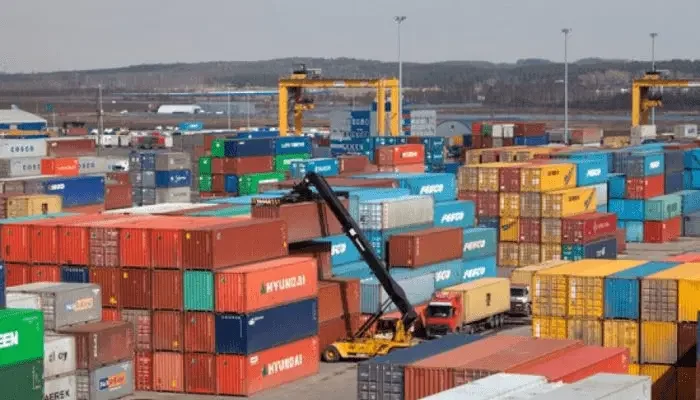Nigeria’s non-oil exports increased by 19.6 per cent to $3.225 billion in the first half of 2025, driven by global demand for products such as cocoa, urea/fertiliser, and cashew nuts.
The Lagos Chamber of Commerce & Industry (LCCI), in a report titled ‘Nigeria’s Global Partnerships: From Agreements To Action’, commended the federal government for the successful outcomes of President Bola Tinubu’s recent diplomatic missions to Brazil and Japan, emphasising the potential for fresh trade opportunities amidst ongoing global tariff tensions.
The director-general of LCCI, Dr. Chinyere Almona, stated, “With Nigeria’s non-oil exports rising by 19.6 per cent to $3.225 billion in the first half of 2025, driven by global demand for products such as cocoa, urea/fertiliser, and cashew nuts, we need to remain focused on supporting these statistics by creating new market routes to new trade partners.
“An increase in non-oil exports to 4.04 million metric tons from 3.83 million tons in the first half of 2024 shows an increased capacity to process non-oil exports and boost our export earnings.”
However, Almona also pointed out that “the decline in export revenues from the U.S. and the current volatility in crude oil prices may pose challenges for foreign exchange inflows in the short term—especially when dollar liquidity is critical. This situation underscores the need for Nigeria to diversify and strengthen its non-oil exports and intra-African trade.”
In light of these challenges, LCCI urged the government to seek strategic partners to bolster Nigeria’s negotiating position, saying that “the signing of the Bilateral Air Service Agreement (BASA) with Brazil is a notable step forward, facilitating direct flights between the two nations.
“This agreement not only has the potential to expand export markets and enhance tourism and cultural exchange but also to create valuable opportunities in technical fields such as aircraft maintenance and aerospace engineering for Nigerian youth.”
Almona emphasised that the Nigeria-Brazil BASA should extend beyond air travel to foster new pathways for trade, mobility, and job creation. It is imperative to activate this agreement proactively and strategically.
Reflecting on the Tokyo International Conference on African Development (TICAD 9) outcomes, Almona expressed gratitude for Japan’s $238 million collaborative financing framework to upgrade Nigeria’s national electricity generation grid infrastructure.
According to her, such investments are pivotal in equipping Nigeria’s youth with the vocational and technical skills needed to thrive in labour-intensive sectors, especially in collaboration with high-manufacturing economies like Japan.
“As Nigeria focuses on revitalising its national grid, it is equally important to invest in renewable energy infrastructure, promote the adoption of CNG technologies, and cultivate an enabling environment that encourages both state and foreign investors to contribute to creating lasting value.”











